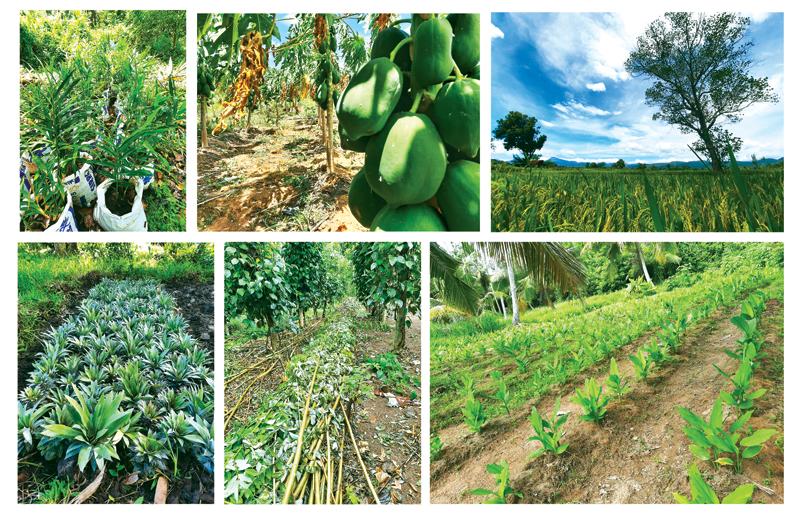
The Export Development Board (EDB) has launched a scheme to assist small farmer groups to cater to overseas markets by acquiring organic certification from internationally accredited certification bodies.
The selected farmer groups were provided support to acquire organic certifications for a maximum of two organic standards (EU/ USDA-NOP / JAS) and renew it for two years, enabling them to set up a stable business.
The project has facilitated five farmer groups including 254 farmers to certify 130 Ha of land as organic. During the project implementation, an awareness workshop was held to educate the farmer on the process to be followed in establishing an Internal Control System (ICS) and maintaining documents which are mandatory activities of the certification process.
The farmer groups were linked with the accredited organic certification bodies such as Control Union Inspection (Pvt) Ltd and Mayacert (Pvt) Ltd operating in Sri Lanka enabling them to proceed with the certification.
The EDB was supported by the SME Development Program of GIZ in Sri Lanka to make the scheme a success.
The beneficiary farmer groups are into the production of spices, coconut-based products, processed or raw fruits and vegetable, coffee, traditional rice and kithul. Details of the farmer groups could be obtained via the link bit.ly/Farmer-Groups.
The demand for organic food products is increasing due to the growing interest in markets such as the EU, USA, Middle East, Japan, and China.
“Even though our farmers or processors follow organic agricultural and processing practices, the products will not be marketed as ‘organic’ unless it is verified and certified by a third-party-accredited certification body,” an EDB spokesman said.
In Sri Lanka, organic certification is provided by the private sector certification bodies accredited and recognised internationally. Most farmers operate small-scale ventures and are reluctant to convert their farms from conventional to organic due to the high cost of certification.
SME farmers or farmer groups join organic exporters willing to invest to get them certified as organic. In such a situation, organic certification is owned by the exporter. Farmers are not in a position to access the market directly or supply their products to other exporters or traders.
The independent decision-making ability of Sri Lankan organic farmers and processors is poor, as they have to depend on the exporter or trader to market their products.
Empowering farmer groups by assisting them to obtain organic certification will facilitate Sri Lankan agro industries to move into organic agriculture in line with the global trends and to obtain high value for their products.
